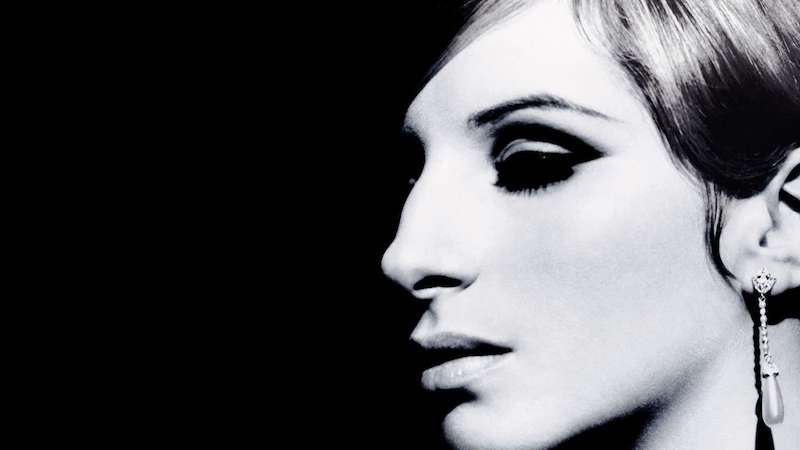
Sigrid Nunez’s The Vulnerables, Barbra Streisand’s My Name is Barbra, and Claire Keegan’s So Late in the Day all feature among November’s best reviewed books.
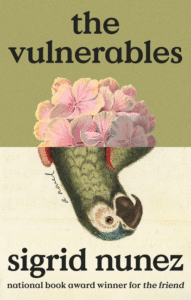
1. The Vulnerables by Sigrid Nunez
(Riverhead)
10 Rave • 5 Positive
Read an interview with Sigrid Nunez here
“Animals and uncomfortable topics: Count on these in a Sigrid Nunez novel. Her slim, discursive, minor yet charming new one, The Vulnerables, is no exception … This one comes across as a Covid diary, with a light scaffolding of incident to hold its meditations up. The narrator’s interactions with the parrot are funny and moving … I can do without animals, most of the time, in novels. But Nunez is a closer observer than most, and she is wittier … Like certain storms, this novel churns intensely in one place. There is a bit more plot … I am committed, until one of us dies, to Nunez’s novels. I find them ideal. They are short, wise, provocative, funny—good and strong company … You don’t have to follow her all the way, and start digging the novel’s grave, to sense that she is onto something. It has always been true: Being told about life, by a perceptive writer, can be as good as, if not better than, being told a story.”
–Dwight Garner (The New York Times)
2. So Late in the Day by Claire Keegan
(Grove Press)
9 Rave
“Keegan offers a master class in precisely crafted short fiction in this collection of three tales … Keegan’s trenchant observations explode like bombshells, bringing menace and retribution to tales of romance delayed, denied, and even deadly.”
–Carol Haggas (Booklist)
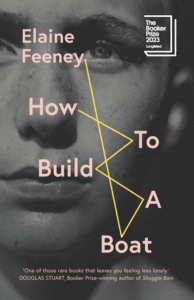
3. How to Build a Boat by Elaine Feeney
(Biblioasis)
4 Rave • 6 Positive • 2 Mixed
“Feeney’s titular boat, a handcrafted currach technically, features prominently in the novel’s final pages, and damned if I wasn’t wiping tears and holding back sniffles as the thing floated downriver … A poet, Feeney’s prose remains dextrous and aptly poetic, especially in representing Jamie’s thoughts … The author celebrates Jamie. Whether he’s observing behavior, making a joke or being assailed by catastrophic thoughts, the character thrums with life … Fumbling but continuing to strive to give life’s terminal messiness some shape, Feeney’s trio captivate with their everyday heroism of muddling though; they ask important questions and make do with provisional answers.”
–Brett Josef Grubisic (The Toronto Star)
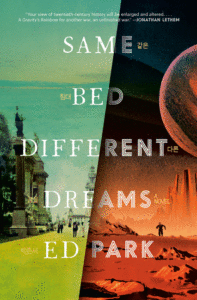
4. Same Bed, Different Dreams by Ed Park
(Random House)
6 Rave • 1 Positive • 1 Mixed
“It’s a challenging read and yet wonderfully suspenseful, like watching a circus performer juggle a dozen torches; will one slip his agile hands? Park seeks to encompass the vast Korean diaspora, but he’s also fleeing realism, a personal diaspora, away from conventional forms … Same Bed Different Dreams struts confidently across registers—lyrical, deadpan, acerbic, comedic—while doling out clues. Characters rotate in and out, some glimpsed in passing, their motives opaque … Sprawling, stunning.”
–Hamilton Cain (The New York Times Book Review)
5. Day by Michael Cunningham
(Random House)
5 Rave • 4 Positive • 1 Mixed • 1 Pan
“The only problem with Michael Cunningham’s prose is that it ruins you for mere mortals’ work. He is the most elegant writer in America. Admittedly, elegance doesn’t carry much cachet these days when Important Novels are supposed to make strident social arguments that we already agree with. But in the presence of truly beautiful writing, a kind of magic vibrates off the page. That’s the aura of Cunningham’s pensive new novel, Day. He has developed a style calibrated to capture moments of ineffable longing … In a novel as thinly plotted as Day, everything depends upon the exquisite flow of Cunningham’s language, but quotations don’t do his work justice. You have to read these sentences yourself in context … Aging, along with its attendant separations and swelling sense of irrelevance, is the novel’s abiding preoccupation. I would accuse Cunningham of projecting his 71-year-old anxieties, but these characters, barely middle-aged, are wholly convincing exemplars of America’s new lost generation. At their backs they always hear time’s winged chariot hurrying near.”
–Ron Charles (The Washington Post)
**

1. The Revolutionary Temper: Paris, 1748-1798 by Robert Darnton
(W. W. Norton & Company)
8 Rave • 2 Positive
“By the end of this exhilarating book, Darnton has done so much more than provide an account of France during the dying decades of the monarchy. Ever since his breakthrough book of essays, The Great Cat Massacre, in 1984 he has concentrated on combining the forward thrust of narrative, or ‘event,’ history with due concern for the deep structures of the past. Historically, these two distinct methodologies have positioned themselves sternly in opposition to one another, but here Darnton proves that it is possible to have the best of both worlds. The result is deep, rich and enthralling, and gets us as near as we probably ever can be to that elusive thing, the collective consciousness.”
–Kathryn Hughes (The Guardian)
2. My Name is Barbra by Barbra Streisand
(Viking)
7 Rave • 5 Positive • 1 Mixed • 1 Pan
“A 970-page victory lap … Details may be familiar to fans, but for the most part they ring out more resoundingly in Streisand’s chatty, ellipses-strewn telling. She may possess megawatt fame …but between these covers she’s just Bubbe Barbra at a kitchen table … Future editions, then, might excise some of the long block quotes of praise from her peers … There’s something exuberant and glorious, though, about Streisand’s photo dump of self-portraits and party pics. Indeed about this whole dragged-out banquet of a book. You might not have the appetite to linger for the whole thing, but you’ll find something worth a nosh.”
–Alexandra Jacobs (The New York Times)
3. A Death in Malta: An Assassination and a Family’s Quest for Justice by Paul Caruana Galizia
(Riverhead)
7 Rave • 3 Positive
“Paul Caruana Galizia is a superb storyteller. His book reads at times like a thriller, at times like a detective story, and at times like the work of an investigative journalist uncovering webs of corruption, with levels of detail that will be most interesting to those who understand Malta, its systems and flaws. His mother emerges as no saint either. She was clearly not the easiest of women to live with. Highly determined people rarely are … This is Daphne Caruana Galizia’s legacy. Her son’s book is a moving testament to the life and work of an extraordinary woman and the country-changing power of journalism.”
–Christina Patterson (The Sunday Times)
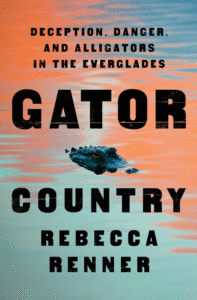
=4. Gator Country: Deception, Danger, and Alligators in the Everglades by Rebecca Renner
(Flatiron Books)
6 Rave • 3 Positive
Read an excerpt from Gator Country here
“Every species, and every person who fights for its continued existence, deserves a book like this—a book that explores the complexity of the nexus between humans and animals and the exploitation of the wild, and considers the ambiguities of our fractured relationship to nature, morality and history.”
–Lydia Millet (The New York Times Book Review)
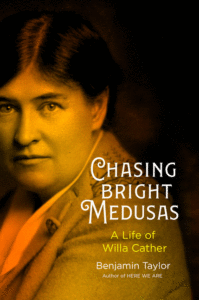
=4. Chasing Bright Medusas: A Life of Willa Cather by Benjamin Taylor
(Viking)
6 Rave • 3 Positive
Read an excerpt from Chasing Bright Madness here
“Should appeal to anyone—novice or expert—ready to explore Cather’s life and work in the company of a critic so alert to the shimmering subtlety of her style and the hard years of effort that went into crystallizing it … With great feeling and deeply informed perception, Taylor helps us readers realize anew the sustained effort it took for Cather to meet ‘the rest of herself,’ in her novels and her life.”
–Maureen Corrigan (The Washington Post)

